Dashnor Kaloçi
Second part
Memorie.al/During the entire period that Sadik Premtja stayed in France, from 1946 until his death on April 7, 1991, he had an active life in political engagements as a member of the French Communist Party and also as chairman of the International of IV, Communist for the Albanian section. As a result, he occasionally published various articles in the magazine published by the IV Communist International and in two of the issues of this magazine in 1988, its editorial office published the memoirs of Sadik Premte entitled “Enver Hoxha a tobacco seller” and the subtitle “Memories of Sadik Friday, an Albanian communist”. These memoirs were prepared by journalist Maurice Najman, presenting them more or less in the form of an interview. While the period of their publication a few years after the death of Enver Hoxha and when political changes were beginning in Eastern Europe, most likely has to do with the fact that he did not want to bring further consequences to family and relatives he had left in Albania. As we will see below in this chapter of the book, Sadiku’s memoirs are provided with explanations by the editorial board of the magazine, and from the beginning they talk about Enver Hoxha, calling him a “tobacco seller”. Regarding this, it reads: “The story we are publishing below is an essential evidence against the distortion of the history of the communist movement in Albania. Our friend, Sadik Premtja, tells what happened, in 1941, during the Anti-Fascist National Liberation War, the Albanian Communist Party was created, one of the founders of which was himself, how, from the beginning, this movement was prey of Stalinist gangrene, which enabled the tobacco seller, Enver Hoxha, to seize power. Below Friday’s memories continue with a chronology of his life and activity, starting from his native village, Gjormi, family and relatives, Fultz American Technical School in Tirana, acquaintance with communist ideas, adherence to The Communist Youth Group, the founding meeting of the Albanian Communist Party, the contradictions with Enver Hoxha and the fight he waged to eliminate him physically during the War period in 1943-’44, concluding them with the assassinations of Sadik by of Albanian Intelligence in cooperation with the Albanian Embassy in Paris, etc., etc. Things that we will see expanded as published by the French magazine organ of the Fourth Communist International giving them complete and without any cuts.
Follows from the previous number
Enver Hoxha, a tobacco seller
Memories of Sadik Friday
An Albanian communist
And to be clear, it was I who delivered the last speech and who, for that reason, followed me as best I could. He participated, in that manifestation, simply like thousands of others and like hundreds of communists. During the founding of the party, in November 1941, he was part of the delegation of his faction. In total we were 6 times 3, that is 18 delegates, plus the two Yugoslav party envoys, Miladin Popovic and Dusan Mugosha, our “tutors”. When the Central Committee was to be elected, Popovic asked for a free hand to elect members from the lists submitted by the three groups. It was self-evident that it would not include the leaders of groups whose past disputes, crystallized into permanent enmity, risked destabilizing the functioning of the party. Enver Hoxha was appointed by Miladin Popovic, interim secretary general. This was very clear and seemed quite “normal”, at least to us, the representatives of the “Youth Group”, more independent than others and non-conformists. Miladin was a true Stalinist and wanted a secretary general, depending on him. He weighed everyone else, but the most servile was Enver Hoxha. The other leaders were chosen by the participants in the meeting. The only elections, those for the provincial committees, took place by voting for numbers, after which only Miladin knew what personalities were hiding. Throughout the period of armed resistance, Enver Hoxha, as the “Chief of Staff”, remained more hidden, in a safe place. In fact, he never fired the gun! I last met him in June 1942. Anastas Lulua, the leader of the old “Youth” group, and I were in the villages, organizing new cells. When we were immediately called to Tirana. We were worried because they had not provided us with forged documents to circulate freely. Meanwhile the country was under siege and the Italians had multiplied checks, mass arrests and raids. Upon arrival in Tirana, we were brought before a real trial, chaired by Miladin. Anastas was sent as a simple soldier to a battalion and a few months later, he was dragged behind a wall, shot as a “spy” and his body was taken out to be seen by the whole village. While I was sent to many villages as a “propagandist”, accompanied as if by my shadow, by a partisan, charged with the task “to protect me” … The political commissar of the Mallakastra battalion, very close to me, took I heard that I had been sentenced to death and that they were waiting for the opportunity to kill me, to then blame me for killing my “enemy of the class”. He told me everything and I was able to escape to Vlora, where my friends controlled the guerrilla forces. There, the battalion chief, Difi, advised me to launch an attack and destroy Hoxha’s envoys, who would come for a check. The ratio of forces was in our favor. The southern battalions, the most culturally and politically developed part of the country, where the resistance was strongest, were with us. So, who kept the south of Albania? But young and inexperienced, we thought that the terrorism of the “majority” was a special phenomenon of a backward country like Albania and that the International, as soon as it found out, would restore the norms of workers’ democracy. So, in our view, not only should their methods not be used, but we should try to persuade the militants. Therefore, we had to respect the “legitimacy of the party”. So, we asked for a meeting to be held …, which was never held. Then the offensive against our group doubled. Mehmet Shehu, executed several years ago as an American, British and Soviet agent at the same time, after 40 years of service and loyalty, devised the idea of an operation of Italian forces against the Mallakastra battalion and ordered the Vlora battalion to ‘went to his aid. Arriving there, the two main battalion chiefs arrested them and sent them to the mountains. The sheikh had taken to the streets a group of armed villagers, whom he had ordered to kill “the spies who had to pass there.” Everything happened as predicted, but one of the two convicts, Vangjua, managed to escape. However, they caught him again and, with a kobura on his head, forced him to sign a letter, in which he agreed to hand over the command of the Vlora battalion to Mehmet Shehu. The battalion disbanded, its soldiers disbanded, and its former chief, broken, signed his claims, accusing the “Trotskyist” Pocket (my nickname) of all evil. Then I was in my village. There I was warned that my ex-old friend would come and kill me. It was May 1943. I remember it as if it were yesterday. With five or six friends, I went to the hut where he lived. When Vangjua saw me, he jumped into my arms crying. We agreed and sent Mehmet a letter entitled “You are traitors”. This was not the first attempt to kill me. Another time they forced one of my partisans to trap me. I had to go to a secret meeting and they would kill me there. The case saved me: on the way I met a group of militants, former members of the “Youth Group”. They informed me of the arrest of the one who had scheduled the secret meeting. In August 1943 they made another attempt to kill me during a trip through the countryside. More than a hundred of our partisans had been killed in this way. To avoid our extermination, I gathered the last cadres to talk about the situation. “We cannot continue. They will exterminate us all. Those who want, let them continue the fight with the party. “I’m going to the West to explain to the International.” I wanted at all costs to live to witness this tragedy. I was able to get out of the country and found myself in Barletta, a small town in southern Italy. I immediately went to the secretary of the P.K. and I explained all my events, leaving no details missing. The desolate friend did not understand me. He looked at me puzzled, asking me how it was possible for the Communists to kill each other so savagely. I compiled a report, which he sent to the Central Committee. Two months later I was called to the section: The Central Committee was obliged to ask Tirana for more information. I understood. I did not have to wait for the answer. I knew it before it came. I had to leave. The police have been following me since a fascist group announced in leaflets hanging on the walls, the existence of “an Albanian communist cell tasked with killing the country’s patriots” inside the IDP camp where I lived. The secretary of the P.K. compiled a letter to the Turin party federation, which hid me for a week in one of its clandestine apartments. Then I crossed the border with the help of some villagers and went out to Modana and then to Chambery. From the answers of the Italian Central Committee, I carefully hid the reasons for my presence in the West. Therefore, I did not ask the head of the local union I met, who was certainly a communist, but some help to find work to pay for the train to Paris, where, ostensibly, I would find my friends in the Albanian legation. So, I worked for three months in a small textile factory and finally arrived in Paris. But where to go? To whom should I cry? I did not know anyone. However, I was able to get to the center of the Italian Red Cross, with the help of an Italian anti-fascist newspaper in Paris, Italia Libre. This place, full of clandestine, was regularly visited by the police, who one morning, interrogated me. Of course, I had no identity document and the prefecture, which required at least a nationality certificate, sent me to the Ministry of Foreign Affairs, trying to find a solution. But in vain. So, the police took me to the Albanian legation! Where can I keep it? It was very dangerous to tell them the truth. Upon entering that building, I would be in the Albanian territory, at the mercy of any conscientious official? But even if I did not go, it was the other danger of repatriation. We were in 1947 and the situation was still turbulent. I deviated from this last thought and joined the legation. When I gave him the name, the clerk faded and ran up the stairs. Twenty minutes later, the first secretary invited me to accompany him to his office. We knew each other before. He was one of the elders of the Korça group. He gave me coffee (which I drank, after I hesitated a bit …) and, to my surprise, he explained to me that “past stories will be clarified over time”, that “things are going well”, that had faith”, and so on. To close, he gave me the address of an Albanian based in Paris, who could find me a job. Two months later, this militant, who, contrary to expectations, had shown himself ready to welcome a declared “traitor”, had been summoned to Tirana. He has not been heard from since. In Paris, I realized what had happened to us. We were not the victims of a particular rotten group. All communist parties, like mine, and in all communist countries, non-conformists committed to true democracy, have been sacrificed even when there have been no open political disputes over building mechanisms loyal to the interests of new users. Since I left, I have not kept in touch with Albania. At that time, my daughter was only three years old. I indirectly learned that she was only allowed to finish elementary school. Hoxha’s anger was stubborn! Only once did I try to restore contacts with the Albanian communists, in 1956, after the Twentieth Congress of P.K. of the Soviet Union. I sent an article of several pages, where I called on the people to overthrow the bureaucracy. I sent it to all the addresses I had: embassies, unions, cultural organizations, etc. I know some have read it. Hoxha himself writes in one of his books: “The traitor Sadik Premtja, sends us through our Yugoslav enemies, a manifesto, where he calls on the communists and the people to overthrow the bureaucracy.” He was literally repeating my phrases! I believe that some cadres remember the past and that this was a disease of Hoxha, because in every one of his books, without exception, he mentions many, many times “my factional activity”, “my betrayal”, etc. The record has been reached in his book on the birth of P.K., where he mentions my name 175 times. He even tried to kill me in Paris. This happened one Sunday on May 6, 1951. I was returning from the cinema to the hotel where I was staying on Charonne Street. A hundred yards from the gate, I dictate a shadow to enter the building. After him I also enter the corridor plunged into darkness after a sudden power outage. Hiding behind a ladder, the stranger jumped and hit me on the head with a nag. Luckily for me, his hand was not safe and the gun slid over my skull without hurting me. I caught him behind the whistle shouting: “Policial Policial” Blood was dripping everywhere. He could escape, but I recognized him. The one who attacked me was Xhemal Cami, once a member of the International Brigades, the man who could do anything, of the Albanian Legation in Paris. The next day he boarded a plane for Prague. Upon arrival in Albania, he was appointed police commissar in Durrës. This did not prevent him from paying for his rank, since, presumably infected by his long stay in France, he was arrested and died in prison. Two years later, another event of the same kind. Suddenly, an Albanian friend of mine became the object of the Albanian embassy. The day they thought he was “ready”, they proposed to trap me: “You are a good worker, a patriot, but you have a relationship with the spy Pocket. You have to help us unmask it. Invite an evening home and let us know. We take care of the leftovers … “He told me everything. In order not to create problems for him, I quit my job and cut ties with him. Then I wrote a letter to the embassy warning them that I would sell my skin expensively. Now the tyrant is dead and people should feel relieved. Of course, Hoxha had been preparing his successor for two years. But the new dictator has no authority. Monolithism is a fabrication. You can suppress the expression of different ideas, but you cannot destroy them, even in Albania. Who knows, maybe we can have an Albanian Krushov …?! / Memorie.al
Summarized by Maurice Najman




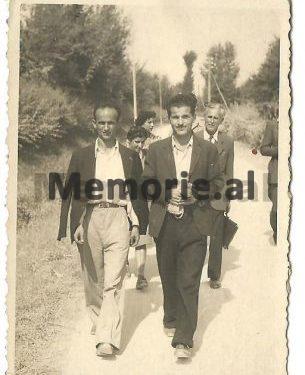
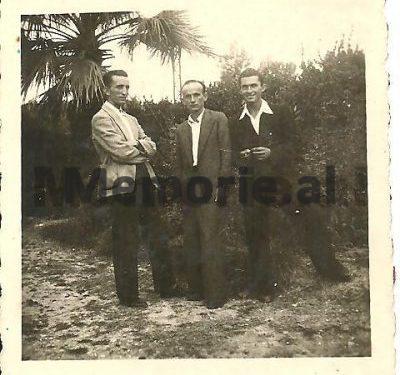
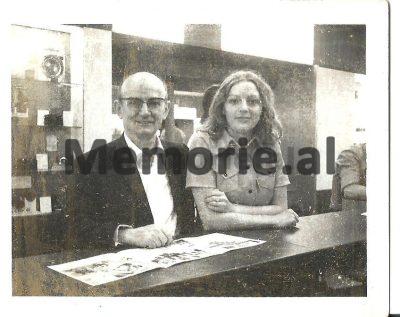
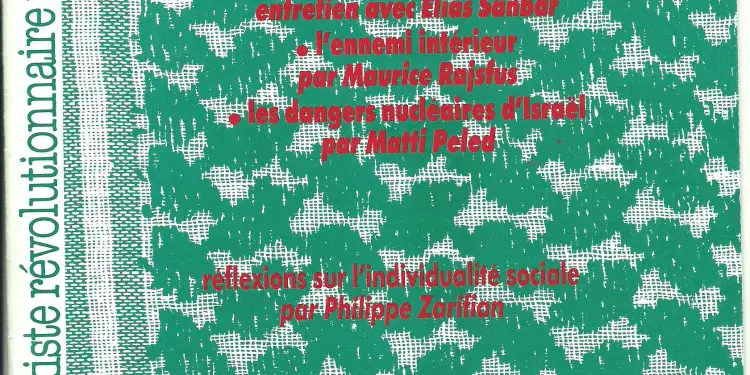
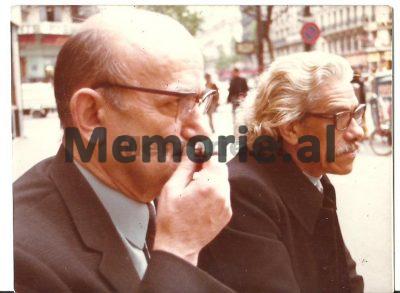
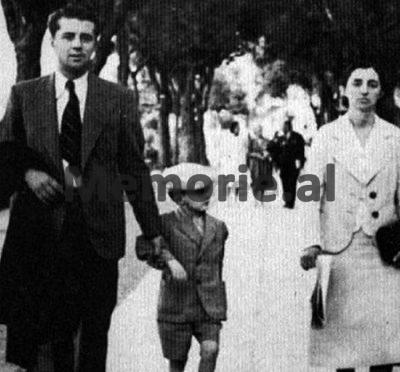
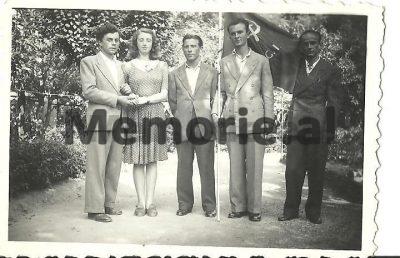
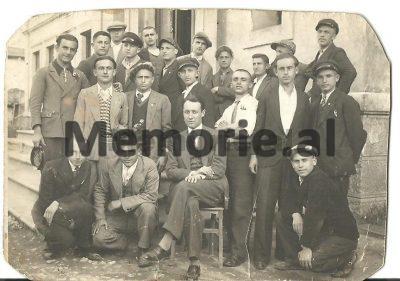
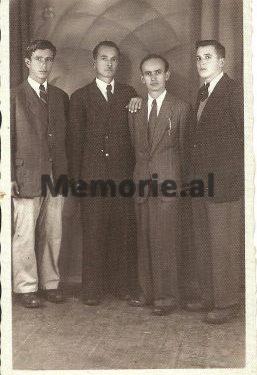
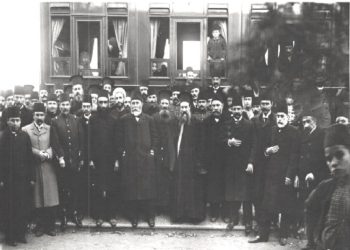
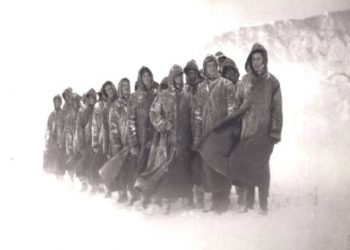

![“When the party secretary told me: ‘Why are you going to the city? Your comrades are harvesting wheat in the [voluntary] action, where the Party and Comrade Enver call them, while you wander about; they are fighting in Vietnam,’ I…”/ Reflections of the writer from Vlora.](https://memorie.al/wp-content/uploads/2025/06/admin-ajax-4-350x250.jpg)


